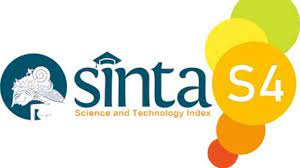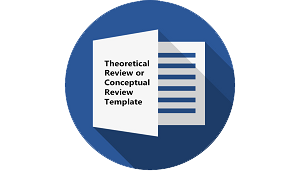Applying Short Conversation to Develop Speaking Skill in Secondary School Context
DOI:
https://doi.org/10.30957/ijoltl.v8i3.753Keywords:
Short conversation, Speaking Skill, Developing.Abstract
The objective of this research is to prove whether the implementation of Short conversation Technique can develop the students’ speaking skill or not. This research applied a quasi-experimental research design which involved experimental and control groups. The population of this research was the eighth-grade students of MTs Negeri 2 Palu. The sample was selected by using a purposive sampling technique. The sample of this research was the students of VIII G (experimental group) and VIII A (Control group). The technique of data collection was oral test (pre-test and post-test). The experimental group was treated by applying short conversation while the control group was taught using conventional method. The data were analyzed statistically and descriptively. The result of data analysis showed that there was a significant difference between pre-test and post-test of experimental group. It was proved by applying the testing hypothesis. The researcher found that the t-counted 4.6 was higher than the t-table 1.687. It means that the hypothesis was accepted. In conclusion, the applying of Short conversation can develop speaking skill of the eighth grade students at MTs Negeri 2 Palu.
Downloads
References
Arikunto. S. (2013). Prosedur Penelitian Suatu Pendekatan Praktek. Jakarta : PT. Rineka Cipta
Cohen, L., Manion, L., Morrison, K., Cohen, L., Manion, L., & Morrison, K. (2018). The ethics of educational and social research. In Research Methods in Education. https://doi.org/10.4324/9781315456539-7
Dewi. (2010). Improving students speaking skill through conversation. Surakarta : Sebelas Maret University.
Fajar, R. F. (2020). Probing-Prompting Learning in Teaching Speaking. Exposure : Jurnal Pendidikan Bahasa Inggris, 9(1), 86–95. https://doi.org/10.26618/exposure.v9i1.3481
Hasanah, U., & Syafar, A. (2021). THE USE OF STUDENT CENTERED-LEARNING (SCL) TO DEVELOP STUDENTS’SPEAKING SKILL. English Language Teaching Society, 9(3), 64-73..
Hermansyah, S., & Sadapotto, A. (2022). The Effectiveness of Intensive Daily Conversation Toward Students Speaking Skill. 8(2), 171–176. http://jurnal.umsrappang.ac.id/laogi/index
Houn, T., & Em, S. (2022). Common Factors Affecting Grade-12 Students’ Speaking Fluency: a Survey of Cambodian High School Students. Jurnal As-Salam, 6(1), 11–24. https://doi.org/10.37249/assalam.v6i1.360
Kemendikbud. (2016). Kementerian Pendidikan Dan Kebudayaan Republik Indonesia. In 4 Januari 2016.
Kusumaningrat, C. I. M. (2021). Guide Conversation Method In English Speaking Learning For Business Administration Class. Ganaya : Jurnal Ilmu Sosial Dan Humaniora, 4(1), 285–299. https://doi.org/10.37329/ganaya.v4i1.1266
Mariam, S., Kepirianto, C., Raharjo, R., & Ma’mun, N. (2022). Integrating Short Conversation and English Conversation Applications to Improve Students’ Speaking Skills. Journal of English Teaching and Learning Issues, 5(2), 107. https://doi.org/10.21043/jetli.v5i2.17128
Maulidar, K., Gani, S. A., & Samad, I. A. (2019). Teacher’s strategies in teaching speaking for Cadets. English Education Journal, 10(1), 80-94..
Parker, C., & Bickmore, K. (2020). Classroom peace circles: Teachers’ professional learning and implementation of restorative dialogue. Teaching and Teacher Education, 95, 103129. https://doi.org/10.1016/J.TATE.2020.103129
Resha, P. W., Mawardin, M. S., & Waris, A. (2015). Developing speaking skill of grade VIII students through short conversation. Journal of English Language Teaching Society (ELTS), 3(1).
Richards, J. C., & Schmidt, R. (2013). Longman dictionary of language teaching and applied linguistics. Routledge.
Sudarsono, S., Regina, R., & Toni, A. (2021). Short Dialogues Memorization To Improve Students’ Speaking Ability. Journal of English Educational Study (JEES), 4(2), 148–156. https://doi.org/10.31932/jees.v4i2.1379
Suparman, L. (2017). The effectifness of the english conversation to improve students’ speaking skill. Palapa, 5(2), 38-52.
Thornbury (1992) principles of seech communication, Illinois, Scott, foreman and company
Downloads
Published
How to Cite
Issue
Section
License
Authors who publish with this journal agree to the following terms:
- Authors retain copyright and grant the journal right of first publication with the work simultaneously licensed under a Creative Commons Attribution-ShareAlike 4.0 International License that allows others to share the work with an acknowledgement of the work's authorship and initial publication in this journal.
- Authors are able to enter into separate, additional contractual arrangements for the non-exclusive distribution of the journal's published version of the work (e.g., post it to an institutional repository or publish it in a book), with an acknowledgement of its initial publication in this journal.
- Authors are permitted and encouraged to post their work online (e.g., in institutional repositories or on their website) prior to and during the submission process, as it can lead to productive exchanges, as well as earlier and greater citation of published work (See The Effect of Open Access).












